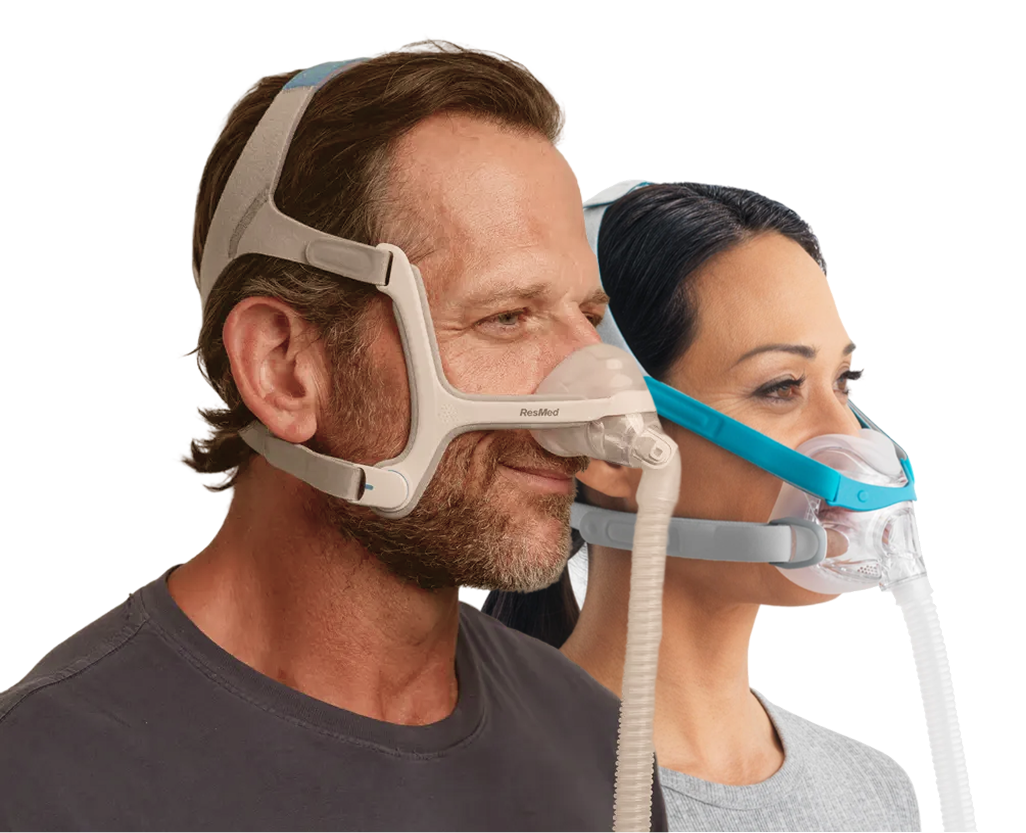Difference types of CPAP Masks
Finding the optimal CPAP mask is often a key factor in the success of CPAP therapy for the treatment of obstructive sleep apnea. A properly fitted mask ensures effective pressurized airflow through the device, keeping the airway open throughout the night. Depending on whether you breathe primarily through your nose or mouth, different types of masks can provide greater comfort and a better seal.
The three most common types of CPAP masks:
+ Nasal mask
+ Nasal pillow mask
+ Full face mask
Nasal and full face masks are the most commonly used masks for CPAP therapy. Some experts may recommend trying a nasal mask first, then another mask if you experience problems with fit or results.

>>> What Are The Different Types Of CPAP Masks Available?
Nasal Pillow CPAP Mask
These masks are ideal for those who enjoy reading before bed, feel uneasy in confined spaces, or have facial marks or scars from other mask types. They also suit side or stomach sleepers who prefer minimal contact with the face.
Considerations:
- Users of high-pressure CPAP machines (the pillows may be less effective at high pressures)
- People who breathe through their mouth and do not wish to use a chin strap
- People who often suffer from nasal congestion or allergies
Nasal CPAP Mask
Most nasal masks consist of a cushion that covers the entire nose between the bridge of the nose and the upper lip.
Ideal for:
+ You breathe through your nose and prefer a mask that covers less of your face.
+ People who move around while sleeping.
+ People who find full-face masks too bulky.
+ If you breathe through your mouth, you can still use a nasal mask, although you may need a chin strap to keep your mouth closed.
Considerations:
- People with stuffy noses or sinus problems.
- People who feel uncomfortable due to pressure on the bridge of their nose.
- People with mustaches.
Full Face CPAP Mask
Considerations:
- Restless sleepers who change positions frequently
- Individuals who feel uncomfortable in confined spaces
- Side sleepers who might notice air leaks from larger masks
- People with facial hair that can disrupt the mask seal
FAQs
How do I know which CPAP mask to get?
After assessing your sleeping habits and preferences, you should carefully familiarize yourself with the features of each CPAP mask: Design: The shape and coverage of the mask, which sits under the nose, over the nose, or over the mouth and nose, affect comfort and suitability for different sleeping positions.
What type of CPAP mask is best for side sleepers?
The best mask for side sleepers is usually a nasal mask or nasal pillow, as these cover less of the face and are less bulky than full-face masks. If you choose a nasal mask, make sure it fits snugly against your face and has a soft elastic strap to keep it in place.
What is the best CPAP mask if you sleep with your mouth open?
The two best CPAP mask options if you breathe through your mouth while sleeping are the full-face mask or the nasal mask with a chin strap. Both options are designed to prevent unwanted leaks through the mouth during therapy. Depending on your situation, your doctor may also recommend a hybrid mask, a full-face mask, or an oral mask.
>>> Which Is The Best CPAP Mask for Side Sleepers?






